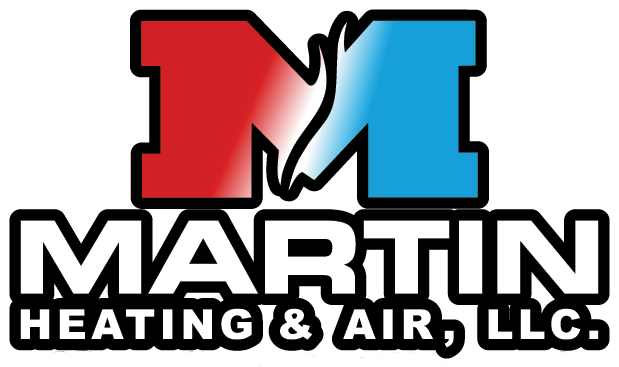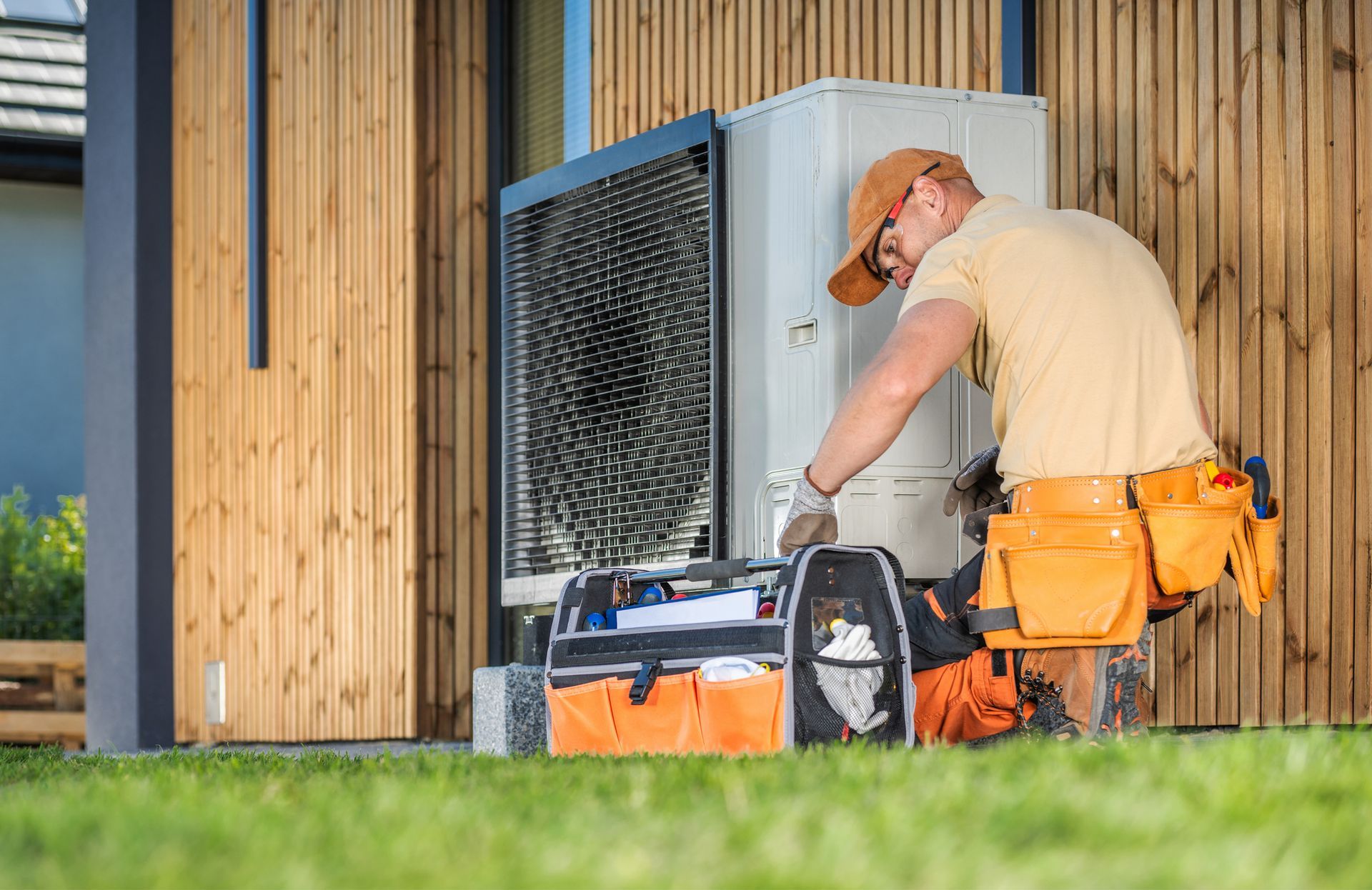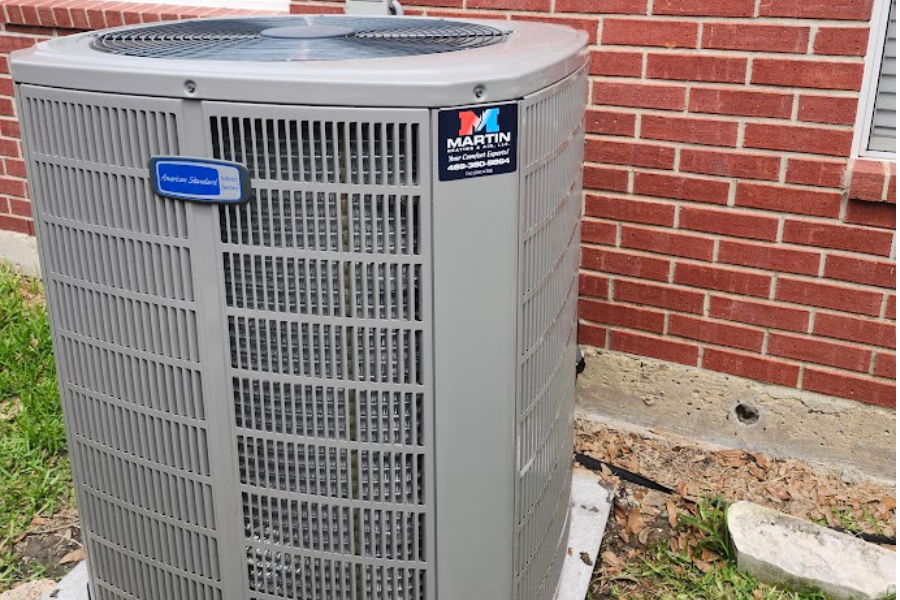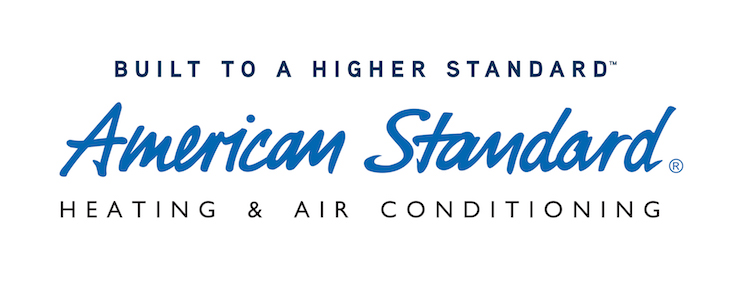Expert Heating and Cooling Services
Proudly Serving
Wylie, TX, Rockwall, TX,
and the surrounding area
The HVAC (heating, ventilation, and air conditioning) industry is constantly evolving, with new technologies emerging all the time. Here are some of the latest trends in HVAC technology:
- Smart thermostats are becoming increasingly popular. These thermostats can be controlled remotely with a smartphone or tablet, and they can learn your habits to automatically adjust the temperature to your liking. Smart thermostats can also help you save energy by tracking your usage and providing feedback on how to improve efficiency.
- Variable refrigerant flow (VRF) systems are becoming more common in commercial buildings. VRF systems can provide precise temperature control in each zone of a building, which can help to improve comfort and energy efficiency.
- Heat pumps are becoming a more popular option for both heating and cooling. Heat pumps can transfer heat from one place to another, so they can be used to heat your home in the winter and cool it in the summer. Heat pumps are also more energy-efficient than traditional furnaces and air conditioners.
- Indoor air quality (IAQ) systems are becoming increasingly important as people become more aware of the importance of clean air. IAQ systems can remove pollutants from the air, such as dust, pollen, and mold. This can help to improve occupant health and comfort.
- Geothermal HVAC systems use the earth’s natural energy to heat and cool buildings. Geothermal systems are very energy-efficient and can save homeowners a significant amount of money on their energy bills.
These are just a few of the latest trends in HVAC technology. As the industry continues to evolve, we can expect to see even more innovative and efficient technologies emerge in the years to come.
In addition to the trends mentioned above, here are some other emerging HVAC technologies to watch for:
- Heat recovery ventilation (HRV) systems recover heat from the exhaust air and use it to preheat the incoming air. This can help to improve energy efficiency and reduce heating costs.
- Demand-controlled ventilation (DCV) systems only ventilate when it is needed, which can help to save energy. DCV systems can be controlled by sensors that measure the level of CO2 in the air.
- Evaporative cooling systems use water evaporation to cool the air. Evaporative cooling systems are a more energy-efficient alternative to traditional air conditioners in hot, dry climates.
- Biomass boilers use wood, pellets, or other organic materials to heat water. Biomass boilers are a renewable energy source that can help to reduce carbon emissions.
These are just a few of the many emerging HVAC technologies that are being developed. As the world becomes more focused on sustainability and energy efficiency, we can expect to see even more innovative HVAC technologies in the years to come.
If you are interested in learning more about these technologies, or if you are considering upgrading your HVAC system, please reach out to us at Martin Heating & Air and we will be happy to help you.
Financing Options Are Available
Convenient Payment Options | Simple Application Process

Slide title
Write your caption hereButton
Slide title
Write your caption hereButton
Slide title
Write your caption hereButton
Slide title
Write your caption here
Slide title
Write your caption hereButton
Slide title
Write your caption hereButton
Slide title
Write your caption hereButton
Slide title
Write your caption hereButton
Slide title
Write your caption hereButton
Get in Touch with Martin Heating & Air Today for Exceptional Service!
Contact us by calling (469) 887-4523, or fill out the form below and we will be in contact within one business day.
Website Message
Thank you for contacting us!
We will get back to you as soon as possible.
Oops, there was an error sending your message.
Please try again later...
Maximize Comfort with Annual HVAC Maintenance
- Higher Efficiency, Lower Energy Costs
- Avoid Expensive Repair Costs
- Fend Off Urgent Repairs
- Improve System Life Cycle
- Healthier Indoor Environment
- and more!
Testimonials
What our clients says about us
Don’t take our word for it. See what some of our clients have to say. In fact we encourage you to read all of our Google Reviews!
Martin Heating & Air is proud to be a Amana and America Standard Authorized Dealers and will service all makes and models!
3971 Skyview CT, Suite 100A
Wylie, TX 75098
- Mon - Fri
- -
- Saturday
- -
- Sunday
- Closed








